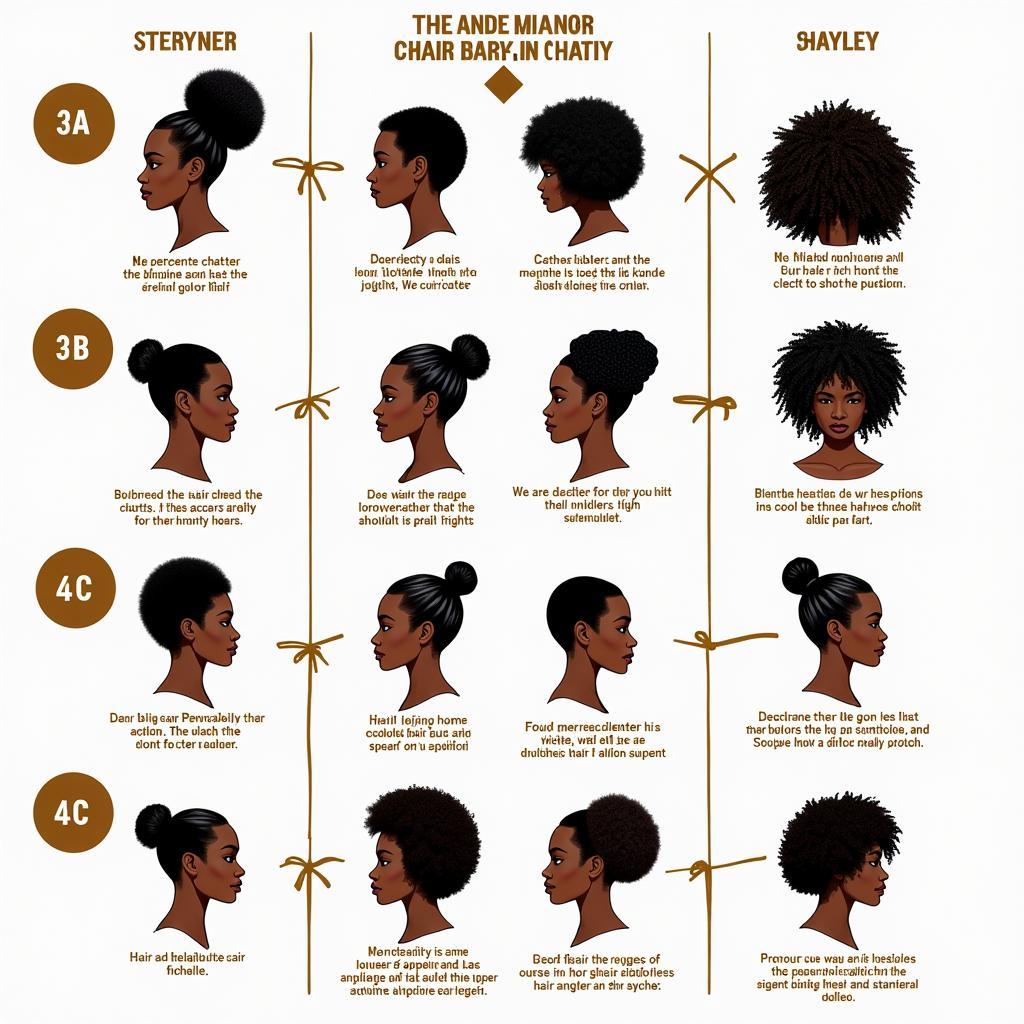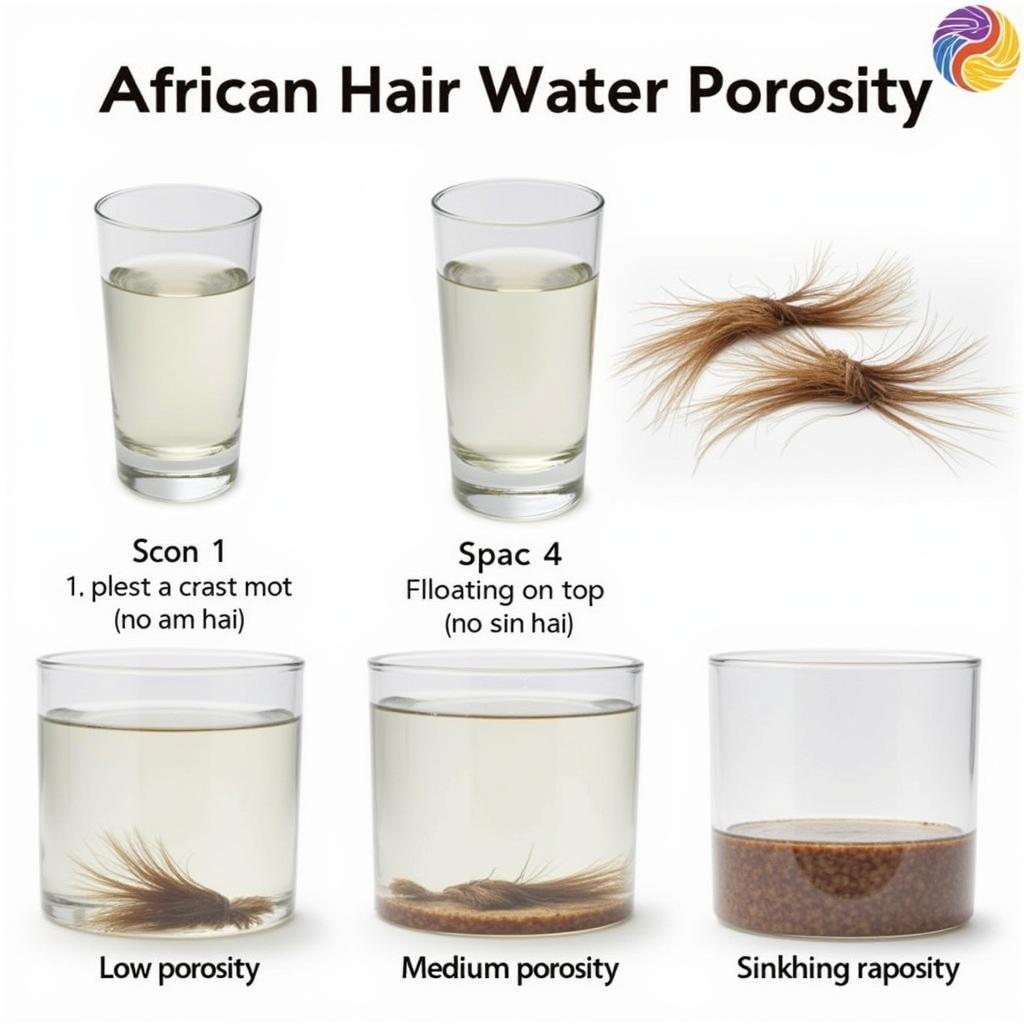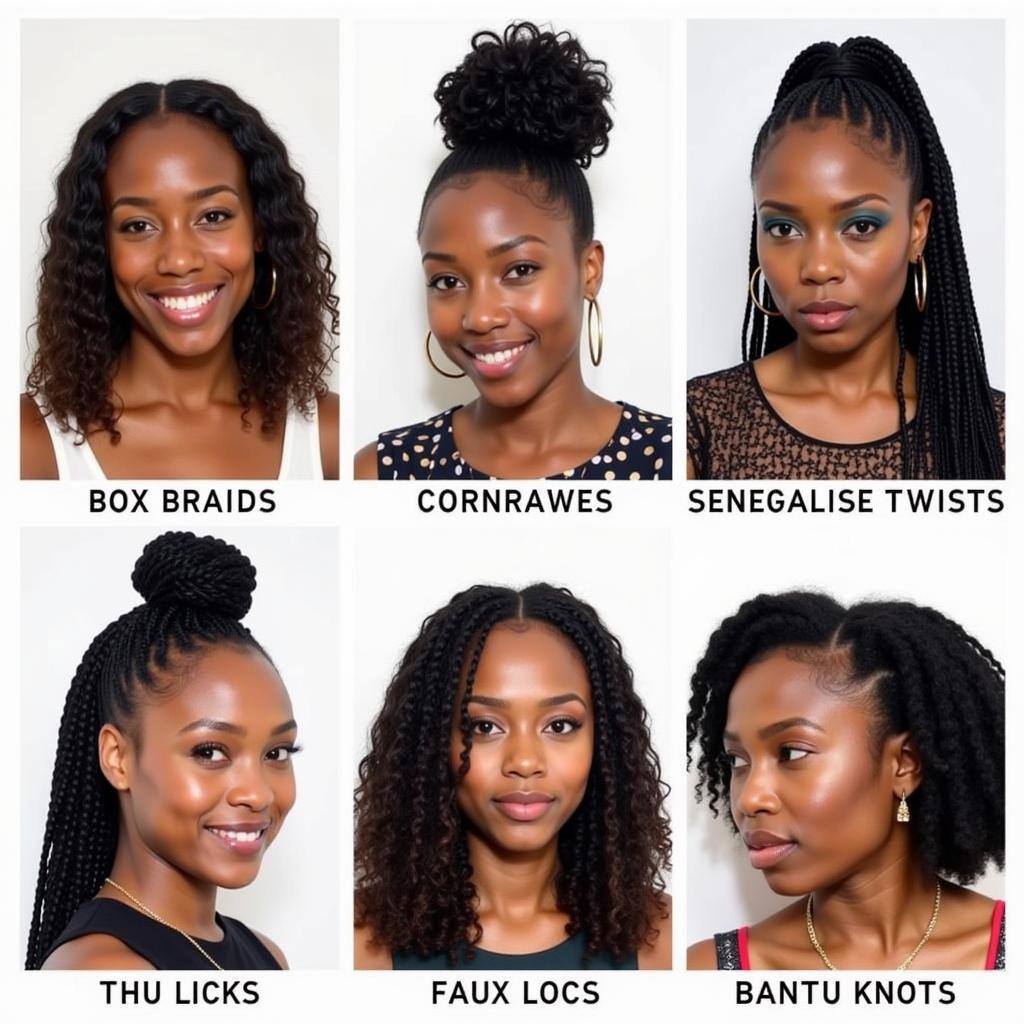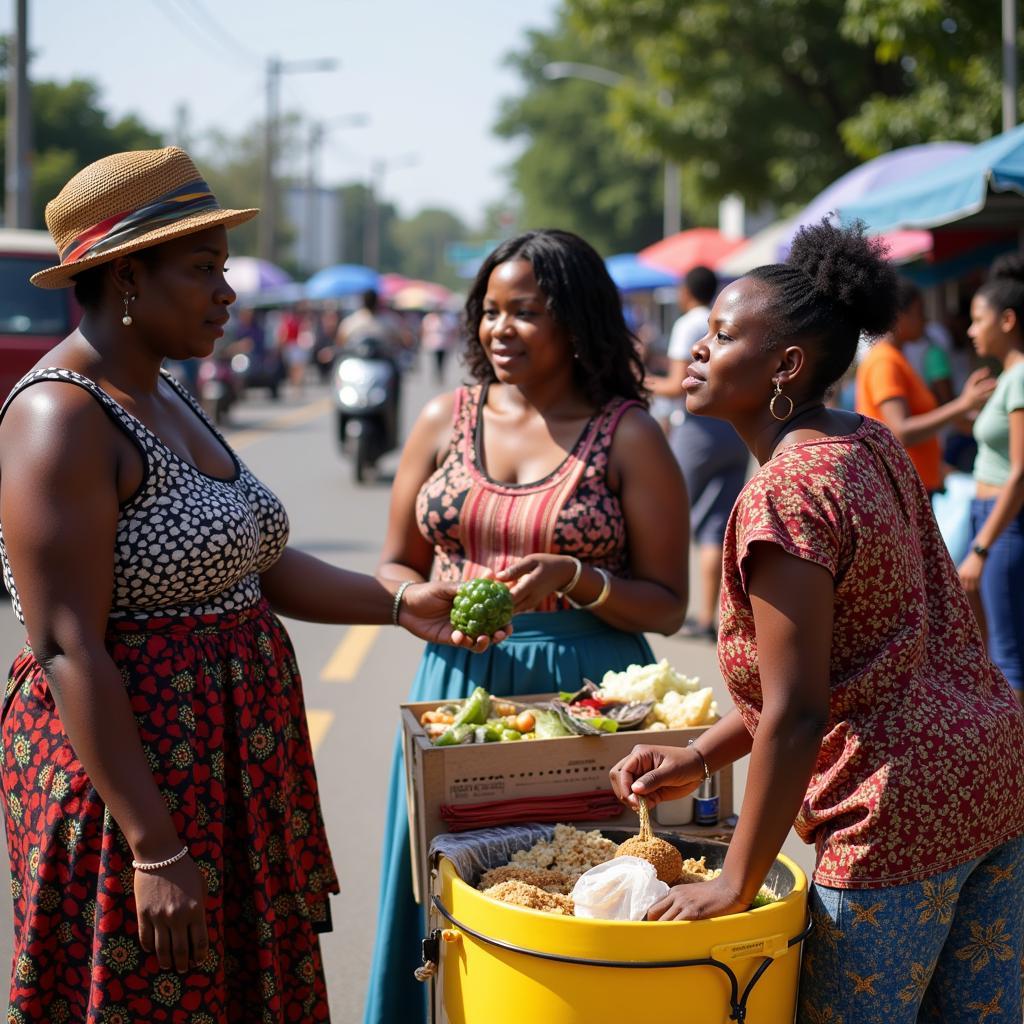The Ultimate Guide to African Hair Treatment Tips
For centuries, people of African descent have adorned their hair in a myriad of styles, each telling a story of heritage, creativity, and individuality. This rich tapestry of hair traditions is deeply intertwined with natural hair treatment practices passed down through generations. Whether you’re rocking braids, locs, twists, afros, or anything in between, understanding the unique needs of African hair is essential for achieving healthy and vibrant locks. This comprehensive guide will delve into the best African Hair Treatment Tips, empowering you to embrace and enhance your natural crown.
 Chart of Different African Hair Types
Chart of Different African Hair Types
Understanding Your Hair Type: The First Step to Tailored Care
African hair is as diverse as the continent itself. From loose waves to tight coils, each hair type has unique characteristics and demands tailored care. Familiarizing yourself with your specific hair type is crucial for developing an effective hair care regimen. The widely recognized Andre Walker Hair Typing System categorizes African hair into four main types: 3 (curly), and 4 (coily), each with subcategories (A, B, C) that denote curl tightness, texture, and porosity.
 Visual Guide for the African Hair Porosity Test
Visual Guide for the African Hair Porosity Test
Essential African Hair Treatment Tips: Nourishing Your Roots to Tips
Healthy hair begins with a holistic approach, encompassing gentle cleansing, deep conditioning, regular moisturizing, and protective styling.
Cleansing Rituals: Striking a Balance for Healthy Growth
Unlike other hair types, African hair thrives on less frequent washing. Over-washing can strip away essential oils, leaving hair dry, brittle, and prone to breakage.
- How often should you wash? Ideally, wash your hair every 1-2 weeks, or less depending on your hair’s needs and lifestyle.
- Choosing the right shampoo: Opt for sulfate-free, moisturizing shampoos specifically formulated for curly or coily hair.
- Clarifying is key: Once a month, use a clarifying shampoo to remove product buildup, which can hinder moisture absorption.
Deep Conditioning: The Holy Grail for Moisture and Strength
Deep conditioning is a non-negotiable step in any African hair care routine. It infuses strands with much-needed moisture, strengthens hair fibers, and enhances elasticity, reducing breakage and promoting healthy growth.
- Choose your weapon: Select a deep conditioner rich in natural oils (like coconut, jojoba, or argan oil), shea butter, or other humectants.
- Deep treat regularly: Indulge in a deep conditioning treatment at least once a week, leaving it on for 20-30 minutes with heat for optimal penetration.
- DIY magic: Explore homemade deep conditioning recipes using natural ingredients like avocado, banana, honey, or yogurt for an extra boost of nourishment.
Moisturizing: The Daily Dose of Hydration Your Hair Craves
African hair tends to be naturally dry due to its tightly coiled structure, which hinders the distribution of sebum (natural oils) from the scalp.
- The LOC method: This popular method utilizes layering to lock in moisture:
- Liquid: Start with a water-based leave-in conditioner or spray.
- Oil: Seal in the moisture with a natural oil like coconut, olive, or jojoba oil.
- Cream: Finish with a moisturizing hair cream or butter for added hydration and definition.
- Nighttime nourishment: Never sleep on cotton! Wrap your hair in a satin scarf or use a satin pillowcase to prevent friction, moisture loss, and breakage.
Protective Styling: Shielding Your Strands from Damage
Protective styles, like braids, twists, locs, or weaves, help to minimize manipulation, reduce breakage, and promote hair growth. However, it’s crucial to install and maintain these styles correctly to avoid damage.
- Avoid tight styles: While a sleek look is often desired, overly tight braids or extensions can cause scalp irritation, breakage, and even hair loss.
- Give your hair a break: Avoid keeping protective styles in for extended periods. Aim to take them down every 4-6 weeks to allow your scalp to breathe and your hair to be properly cared for.
 Examples of Popular Protective Hairstyles for African Hair
Examples of Popular Protective Hairstyles for African Hair
Traditional African Hair Treatment Tips: Harnessing the Power of Nature
For centuries, African communities have relied on the power of natural ingredients to nurture and style their hair.
- Shea butter: This rich butter is a staple in many African cultures, renowned for its intense moisturizing and protective properties. It can be used as a sealant, deep conditioner, or scalp treatment.
- Black soap: Made from a blend of natural ingredients like plantain peels, cocoa pods, and palm oil, African black soap gently cleanses the scalp, reduces dandruff, and promotes hair growth.
- Aloe vera: This soothing plant is a natural moisturizer and anti-inflammatory agent, perfect for soothing itchy scalps and promoting healthy hair growth.
- Chebe powder: Originating from Chad, this powder, made from a blend of herbs and resins, is believed to promote hair growth, strengthen hair strands, and prevent breakage.
Seeking Professional Care: When to Consult a Trichologist or Stylist
While home care is essential, consulting a professional trichologist or stylist specializing in African hair can provide personalized guidance and address specific concerns.
- Scalp issues: If you experience persistent itching, flaking, or scalp irritation, a trichologist can diagnose and treat the underlying issue.
- Hair loss or thinning: A trichologist can assess the cause of hair loss and recommend appropriate treatments or lifestyle changes.
- Chemical treatments: If you’re considering chemical treatments like relaxers or texturizers, it’s crucial to consult a stylist experienced in working with African hair to minimize damage and achieve desired results.
Conclusion: Embracing the Beauty of Your Natural Crown
Caring for African hair is a journey of self-love and discovery. By understanding its unique needs and incorporating these African hair treatment tips into your routine, you can unlock the full potential of your natural crown, achieving healthy, vibrant, and flourishing hair. Remember, your hair is a reflection of your heritage and a testament to your unique beauty. Embrace it, nurture it, and let it shine!
